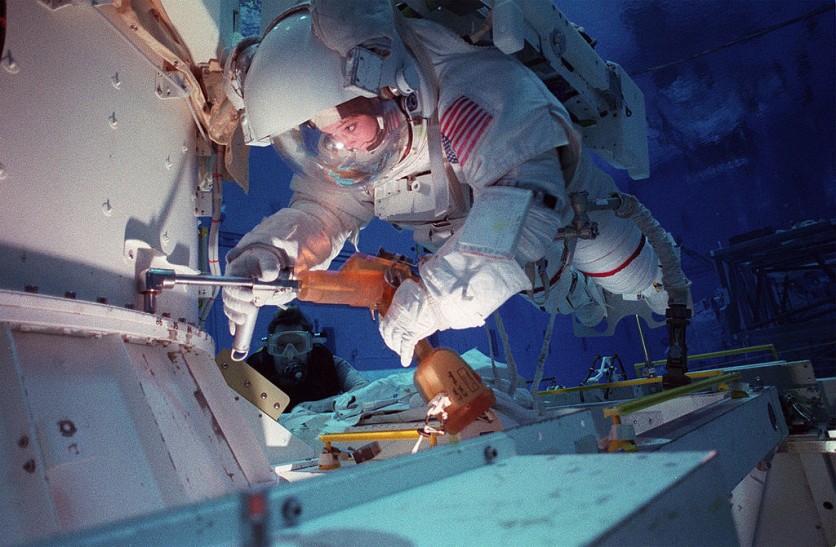A new study finds that an improved in-space diet that includes fruits, vegetables, and fish may improve astronaut health and performance, according to a report by Space.com.

Spaceflight Risks
The risks associated with spaceflight for astronauts include increased radiation exposure and the protracted effects of microgravity.
Hence, astronauts must keep a nutritious diet so that they may never acquire these risks. However, NASA's food scientist Grace Douglas told Space.com that space flights are weight-limited and food contains high mass requirements.
According to Douglas, all food for space travel must be processed to provide shelf stability at room temperature or the ability to last on shelves for an extended period of time at room temperature without going bad.
But she noted that most healthy foods are not consumed this way.
Douglas claims that her team was able to create a wider selection of fruits and vegetables that are suitable for spaceflight and supply them at a higher level in the new study.
The group used these items to create an improved diet that included more fish, tomatoes, and other foods high in essential nutrients like flavonoids and omega-3 fatty acids. They also added a wider range of fruits and vegetables.
Read also : Roscosmos ISS Departure Concerns NASA-Leaked Contingency Plan Shows Pulling Out Astronauts as Solution
Comparing Diets
The effects of the increased spaceflight diet and the present ISS diet on six women and ten men were compared by the researchers.
In a closed box on Earth created to mimic the conditions of confined spaceflight, these 16 individuals participated in 45-day missions while eating either one diet or the other.
They discovered that subjects eating the increased diet had reduced cholesterol and cortisol levels. They also fared better on a straightforward video game meant to assess their mental abilities in terms of speed, accuracy, and concentration.
Additionally, their gut microbiomes, which are a community of microbes that naturally inhabit our digestive tracts, remained more diverse and rich than those of participants who followed a standard diet, which is an indication of excellent health.
Douglas and her team are currently studying this diet on space missions.
"NASA is interested in how food mass can be cut, but first we have to understand how food is interacting with health and performance on these missions, and then how cuts may impact health and performance," Douglas said in a statement with Space.com.
"More vehicle mass may be needed for food to support health and performance, especially as missions become longer and [go] further from Earth."
The team published their findings in the journal Scientific Reports.
Related Article : Astronauts' Brains Change During Space Missions? New Study Claims Cosmonauts Already Experience Brain Rewiring

ⓒ 2026 TECHTIMES.com All rights reserved. Do not reproduce without permission.




